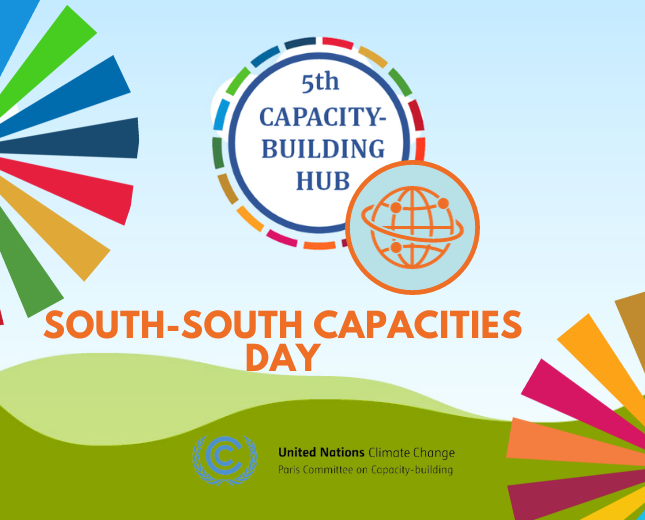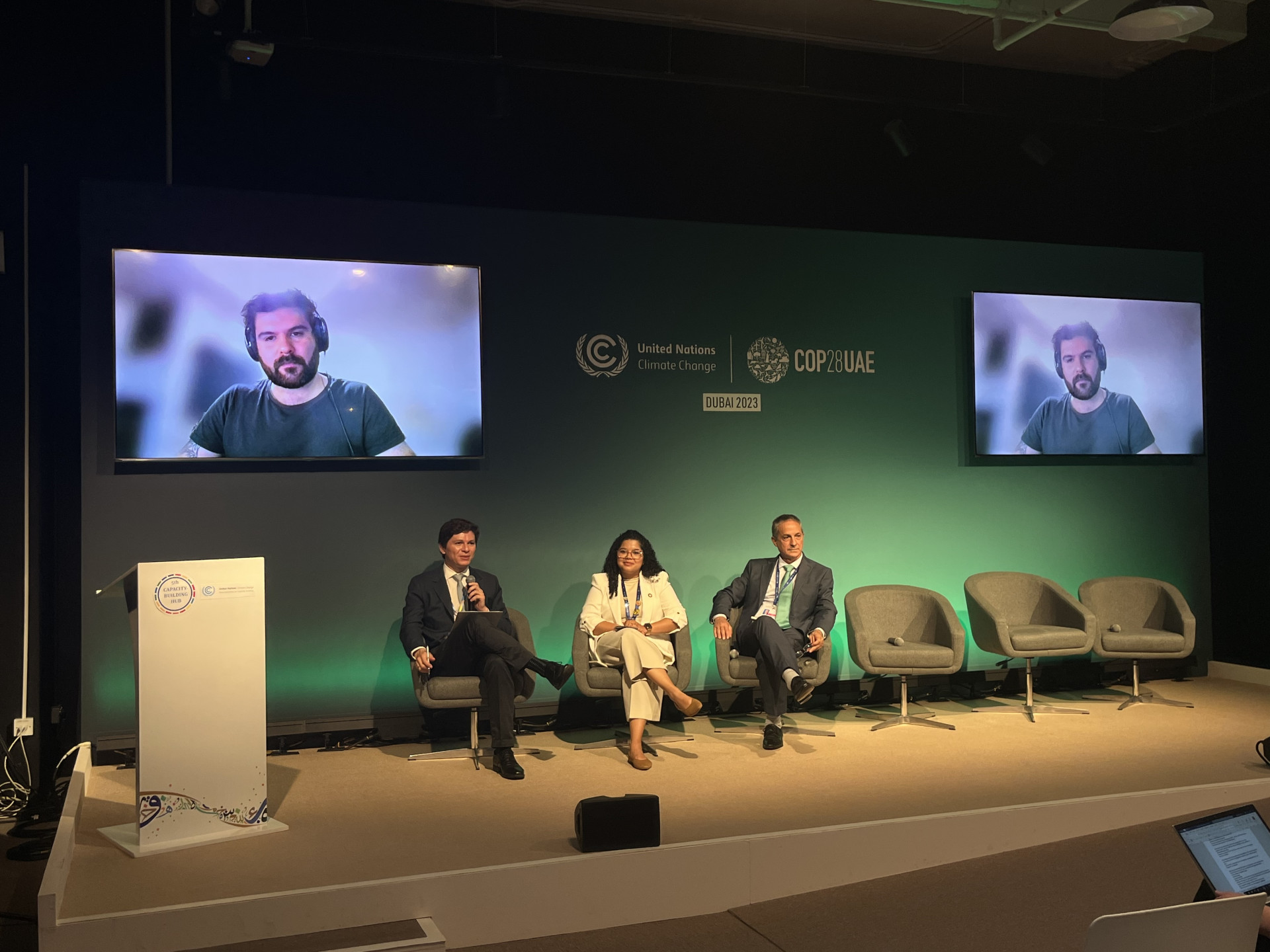Credit: Impulsouth
Recording
Organizers
This session was organized by Global Environment Facility and UNEP-CCC
Background
The Capacity-building Initiative for Transparency - Global Support Programme (CBIT-GSP) is a global climate transparency project supporting developing countries in the transition to the Enhanced Transparency Framework (ETF) of the Paris Agreement. The project is funded by the Global Environment Facility (GEF) through CBIT, implemented by the United Nations Environment Programme (UNEP), and executed by the UNEP Copenhagen Climate Centre (UNEP-CCC).
The CBIT-GSP project includes various support modalities, notably its ten Transparency Networks, through which support to countries is provided at the regional and national levels. Through its Transparency Network of the Spanish-speaking Latin America and the Caribbean Region (SSLAC) and Network Coordinator, CBIT-GSP has forged a south-south learning collaboration between the network countries of Cuba, Chile, and Panama.
This cooperation is based on a support request by Cuba, which is currently implementing a national CBIT project to strengthen institutional and technical capacities in the Agriculture, Forestry, and Other Land Use (AFOLU) sector and requires further learning in the area of AFOLU methodologies and inventory management more broadly. The country is also commencing a new inventory cycle as part of its first Biennial Transparency Report under the new Enhanced Transparency Framework (ETF) and, therefore, requires further enhancement of its technical capacities to be able to respond to the new ETF reporting requirements. Cuba has requested support under the CBIT-GSP for the exchange of experiences and lessons learned with other countries in the region, especially with Chile and Panama.
Objectives
- Shared the experiences and lessons learned of the multilateral cooperation between Cuba, Chile, and Panama under the CBIT-GSP as a valuable example of south-south learning within the area of climate transparency, highlighting what worked well and what did not.
- Fostered an open discussion about south-south learning as a capacity-building tool in the area of climate transparency and climate change efforts more generally, including key requirements for effective south-south learning,
- Encouraged other transparency support providers and countries in the same region as well as in other regions across the globe to forge similar cooperations, bilaterally or multilaterally, to get first-hand insights into the climate transparency efforts of other countries.
Structure
| Time |
Segments |
| 5 mins |
Welcome and opening remarks |
| 5 mins |
Mentimeter survey |
| 25 mins |
Panel discussion with speakers from Cuba, Chile and Panama |
| 10 mins |
Interactive discussion with the audience and panelists |
| 5 mins |
Wrap-up and closing |
Speakers
|
Name
|
Affiliation/Organization
|
|
Chizuru Aoki
|
GEF
|
|
Kevin Basoa
|
Climate Change Division
Ministry of Environment - Chile
|
|
Melani Acosta
|
Department of Mitigation
Climate Change Division
Ministry of Environment - Panama
|
|
Wenceslao Carrera
|
Center for Information Management and Energy Development (CUBAENERGÍA) - Cuba
|
Key Outcomes
- Countries should not be afraid to ask for help from other countries directly or through support providers (“Don’t be scared to ask for help,” one of the panelists mentioned).
- Speaking the same language is an important denominator for successful south-south learning, but even more important are the common challenges countries are facing where they can learn from each other and find common solutions, even if each country context is different.
- Virtual meetings are an important and easy tool for south-south learning collaborations but should be coupled with face-to-face meetings to achieve most benefits.
- All can benefit from collaboration even when more advanced countries are paired with less advanced countries.
Resources
Presentation slides
CBIT-GSP
South-South learning collaboration between Cuba, Chile and Panama (Spanish)

